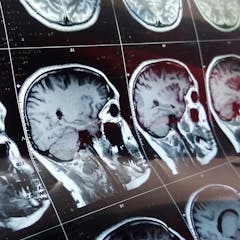
Artikel-artikel mengenai Stroke
Menampilkan 1 - 20 dari 157 artikel

Timely stroke treatment can limit brain damage and improve outcomes for patients. But this depends on early recognition of the symptoms, which is not always easy.

A simple switch from regular salt to salt substitute alternatives will help reduce the risk of heart attack, stroke and kidney disease. It would also provide much-needed health expenditure savings.

Even small increases in temperature can stop our brains from functioning optimally.

The findings of this recent study adds to a growing body of evidence linking microplastics with health harms.

South Africa’s national survey of food and nutrition security identifies the areas most in need.

On the 100th anniversary of Woodrow Wilson’s death, a presidential historian looks at how he was able to stay in power despite his illnesses.

Potassium-enriched salt tastes like regular salt and you don’t need to change how you cook or season your food. You just need to switch the type of salt you buy.

Eating too much salt is bad for our health. Governments and food manufacturers have a big role to play in reducing the salt content of Australians’ diets.

Obesity is a disease that shares several characteristics with cancer, but does not get the same society-wide recognition of its disease status, so people with obesity are less likely to get treatment.

For people with health conditions, disabilities or injuries that do not qualify for ACC, the road to recovery can be long and hard. It is past time for us to do better.

New research shows low-dose aspirin doesn’t prevent strokes in relatively healthy people aged over 70. And it increased their risk of bleeding on the brain after falls or other injuries.

This common heart condition puts you at increased risk of having a stroke, especially if you also have high blood pressure. But our new research shows what you can do to lower your risk.

Gout, psoriasis, inflammatory bowel disease and rheumatoid arthritis are all risk factors for heart disease. They all have one thing in common: inflammation.

Many people with long COVID experience persistent debilitating symptoms like fatigue and brain fog. But a few develop more life-threatening and lasting damage to their heart and brain.

Research shows the key to changing your diet is focusing on changing eating habits and food behaviours, one at a time.

If you want to use an exoskeleton to improve balance, a study finds that superhuman reflexes can help you stay upright.

Women are often under-diagnosed and under-treated for heart disease and may be unaware of their specific risk factors. Clinical and research practices need to reflect the diversity of women in Canada.

People with an active case of shingles have up to an 80% higher risk of stroke than those without. The increased risk is highest for patients under 40.

Auditory processing disorders and aphasia can make spoken speech difficult to produce and understand. But these challenges alone do not imply cognitive impairments.

Health guidelines can feel contradictory and hard to interpret. But a new star rating system should help consumers and policymakers better parse the evidence behind health risks and outcomes.
